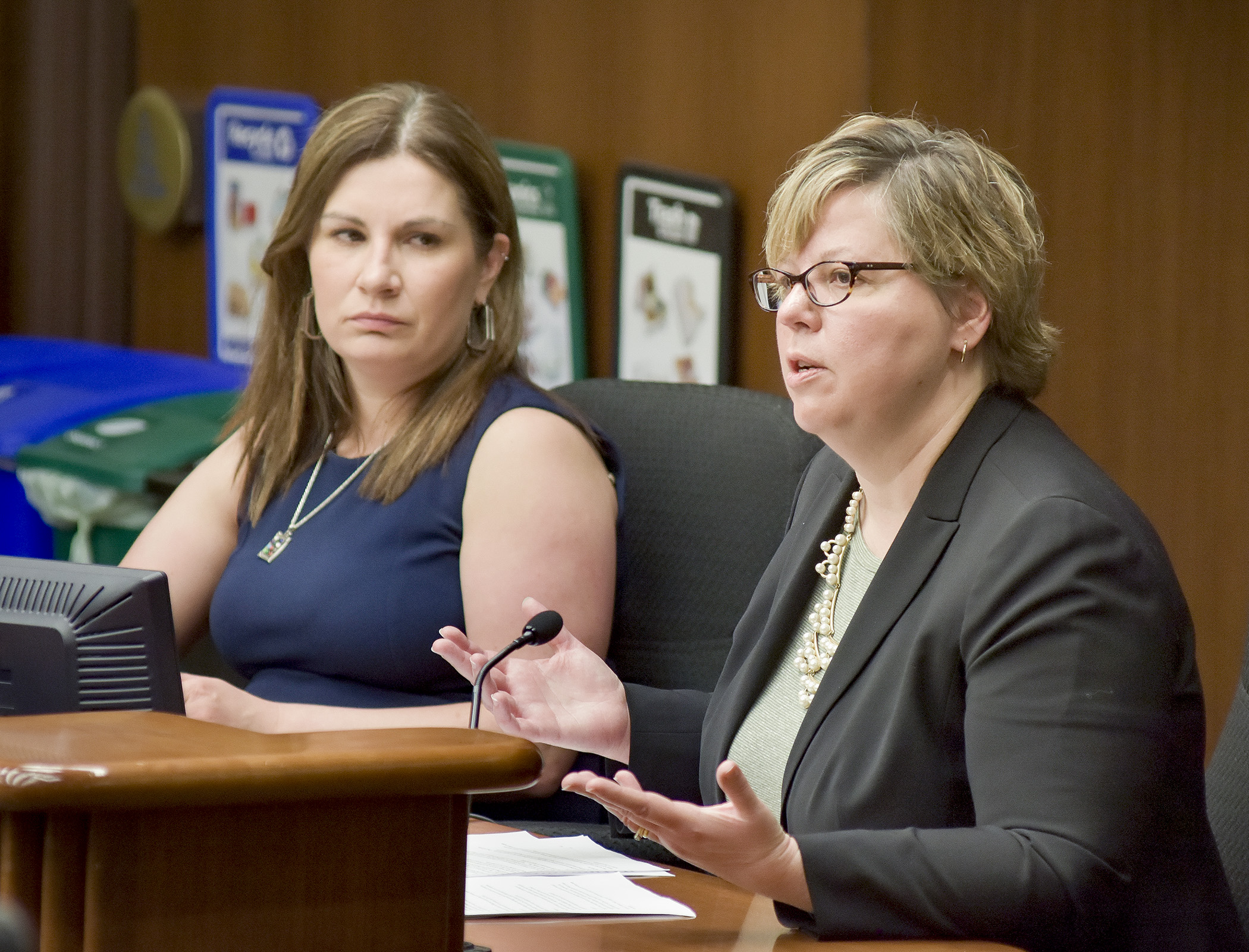Bill would give child care red tape a tug
Life could get easier for parents who juggle changing work schedules, children who cope with shifting child care arrangements and child care providers who struggle to get by while getting paid with federal funds.
That’s the goal of a bill that proposes changes to Minnesota’s Child Care Assistance Program.
Rep. Mary Franson (R-Alexandria), who sponsors HF1458, said her bill would also bring Minnesota into compliance with some requirements (including unfunded mandates) of the federal Child Care and Development Block Grant Act of 2014.
The House Subcommittee on Childcare Access and Affordability, which Franson chairs, approved the bill Wednesday and sent it to the House Health and Human Services Reform Committee. The companion, SF1278, sponsored by Sen. Tony Lourey (DFL-Kerrick), awaits action by the Senate Human Services Reform Finance and Policy Committee.
Franson said HF1458 “mirrors” language in Gov. Mark Dayton’s budget proposal except for new licensing requirements in his plan.
 Melinda Hugdahl, staff attorney with Mid-Minnesota Legal Aid, testifies before the House Subcommittee on Childcare Access and Affordability for a bill sponsored by Rep. Mary Franson, left, that would modify child care provisions. Photo by Andrew VonBank
Melinda Hugdahl, staff attorney with Mid-Minnesota Legal Aid, testifies before the House Subcommittee on Childcare Access and Affordability for a bill sponsored by Rep. Mary Franson, left, that would modify child care provisions. Photo by Andrew VonBankRepresenting the Kids Can’t Wait Coalition, Melinda Hugdahl, staff attorney at Mid-Minnesota Legal Aid's Legal Services Advocacy Project, said the bill would streamline and simplify the Child Care Assistance Program; provide stabilities for families and children; and update provider reimbursement rates frozen at 2011 levels to the 2016 rate.
That last point “is a really significant piece of this whole package of proposals,” Hugdahl said. “This is a huge barrier for families. It’s a big issue for providers.”
Another provision Hugdahl highlighted would lift a limit on how long parents can tap funds from a “portability pool” when they encounter complications moving from one county to another.
Franson said she has heard from “very frustrated” parents. “If they move to the next [county] they’d be kicked off [the Child Care Assistance Program] and sometimes they would have to quit their job because they did not have child care,” she said.
The bill would also limit redeterminations, when counties re-check families’ eligibility, to once every 12 months.
Representing Catholic Charities, Beverly Turner recalled that when the Child Care Assistance Program was created in 1990, it was primarily seen as a work support program. Changes embodied in HF1458, Turner said, would “reorient [the program] to a commitment to child development.”
Under the bill’s expedited, five-business day application process, homeless families’ ability to access child care would see “dramatic” improvement, according to Daniel Gumnit, chief executive officer of People Serving People Inc.
Child care issues have seen a rising legislative profile recently.
In 2016, Franson chaired a House Select Committee on Affordable Child Care, and co-chaired with Sen. Melissa Wiklund (DFL-Bloomington) the Legislative Task Force on Access to Affordable Child Care. The task force published its report to the Legislature last month.
The subcommittee is scheduled to wrap up its work at 6:30 p.m. Feb. 27 by taking up six more bills sponsored by Franson, as well as two bills sponsored by Rep. Peggy Flanagan (DFL-St. Louis Park), the subcommittee’s DFL lead, and one sponsored by Rep. Duane Quam (R-Byron).
The special evening meeting that day will allow child care providers who have been unable to attend the subcommittee’s regular Wednesday morning meetings with a chance to testify.
Related Articles
Search Session Daily
Advanced Search OptionsPriority Dailies
Ways and Means Committee OKs proposed $512 million supplemental budget on party-line vote
By Mike Cook Meeting more needs or fiscal irresponsibility is one way to sum up the differences among the two parties on a supplemental spending package a year after a $72 billion state budg...
Meeting more needs or fiscal irresponsibility is one way to sum up the differences among the two parties on a supplemental spending package a year after a $72 billion state budg...
Minnesota’s projected budget surplus balloons to $3.7 billion, but fiscal pressure still looms
By Rob Hubbard Just as Minnesota has experienced a warmer winter than usual, so has the state’s budget outlook warmed over the past few months.
On Thursday, Minnesota Management and Budget...
Just as Minnesota has experienced a warmer winter than usual, so has the state’s budget outlook warmed over the past few months.
On Thursday, Minnesota Management and Budget...